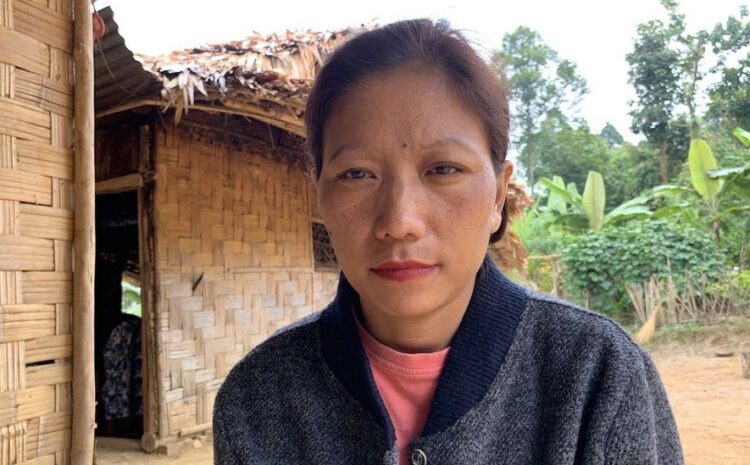
IMAGE SOURCE,NITIN SRIVASTAVA/BBC Image caption, Monglong’s husband was killed days after their wedding
By Nitin Srivastava
BBC Hindi, Mon district, Nagaland
A group of women sit, grim and silent, outside a thatched hut in a village in the north-eastern Indian state of Nagaland.
Inside, a young woman who got married just 10 days ago, is sobbing.
“Who will look after me now?” asks Monglong, 25.
Her husband, Hokup Konyak, was among six men killed earlier this month in Mon district, near the Myanmar border, when Indian security forces opened fire on a group of coalmine labourers returning from work.
Eight more civilians died after troops shot at angry protesters who attacked the army’s camp. A soldier was also killed during the clash.
This was the deadliest spell of violence in years in Nagaland, which has long been roiled by an insurgency led by local militant groups. India’s home minister Amit Shah has expressed “deep anguish” over the killings.
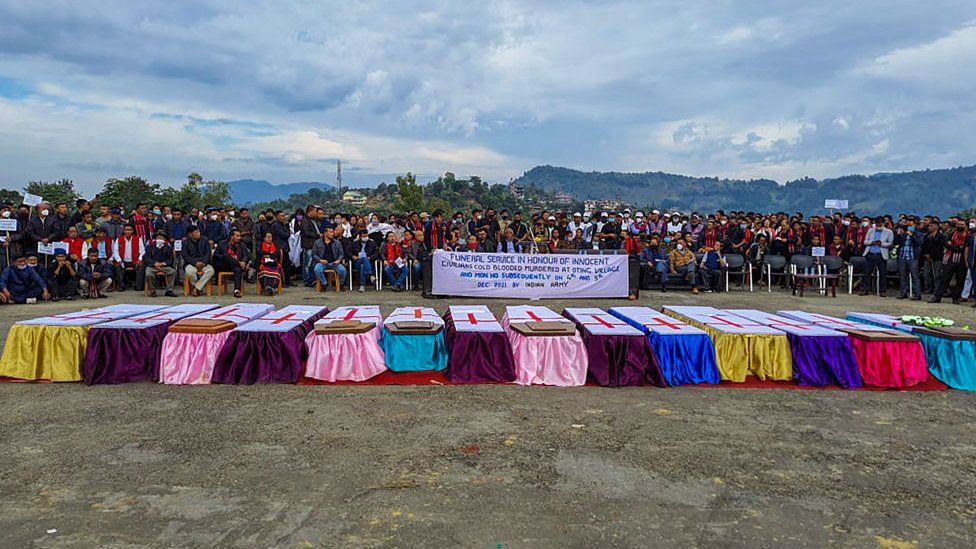 IMAGE SOURCE, GETTY IMAGES
IMAGE SOURCE, GETTY IMAGESThey allege the army patrol stopped the truck and deliberately killed the men.
The army has maintained that the botched operation was a result of “mistaken identity”, and that they thought the villagers were insurgents.
The village councils of Mon district organised a massive rally last week, demanding an apology from the minister for his “false” claim.
The anger shows no sign of abating.
Naga Hoho, the apex body of Naga indigenous people, has warned that the current protests will intensify until their demands are met.
The government and army have ordered separate inquiries into the incident.
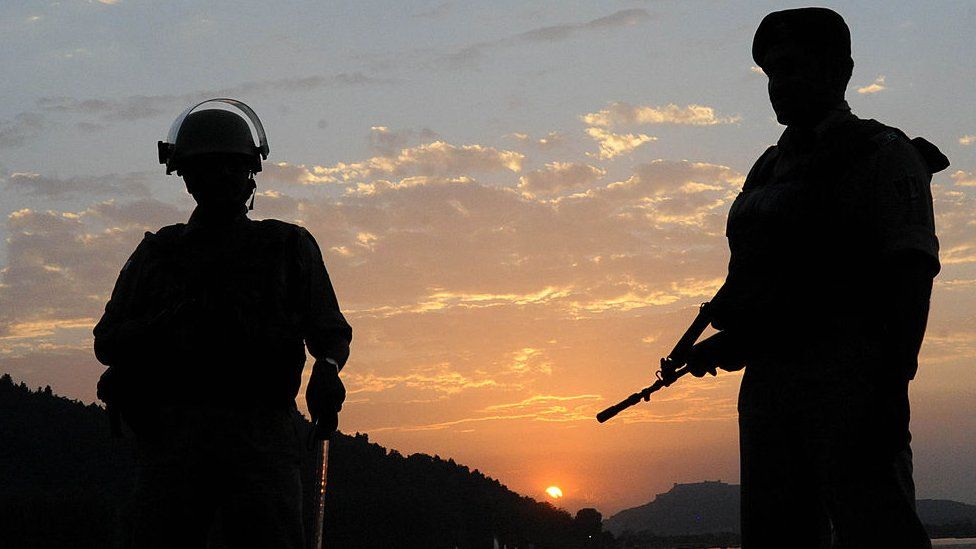 IMAGE SOURCE, GETTY IMAGES
IMAGE SOURCE, GETTY IMAGESProtesters are also demanding an apology from the government for the killings, as well as the repeal of the Armed Forces Special Powers Act (AFSPA).
Ethnic groups in India’s north-east have long opposed the act – a controversial federal law that gives the army sweeping powers, including protection from prosecution for soldiers who mistakenly kill civilians.
The law has been blamed for “fake killings” and campaigners say it is often misused.
The call to repeal the AFSPA was echoed by rights body Human Rights Watch, and the chief ministers of Nagaland and nearby Meghalaya state.
Even leaders of India’s ruling Bharatiya Janata Party (BJP), which is also a coalition partner in the Nagaland government, agree.
“Security forces are meant to protect humans. We want to tell India’s home minister Mr Shah that this draconian AFSPA law is unprofessional, based on unprofessional intelligence inputs and a total failure,” said Hosea Konyak, a senior BJP leader from Mon district.
Mon’s Oting village – home to 12 of the 14 civilians killed in the incident – was merrily preparing for Christmas when the tragedy occurred.
All the shops in the area have been closed in protest. The local church, adorned with a Christmas star, looks deserted.
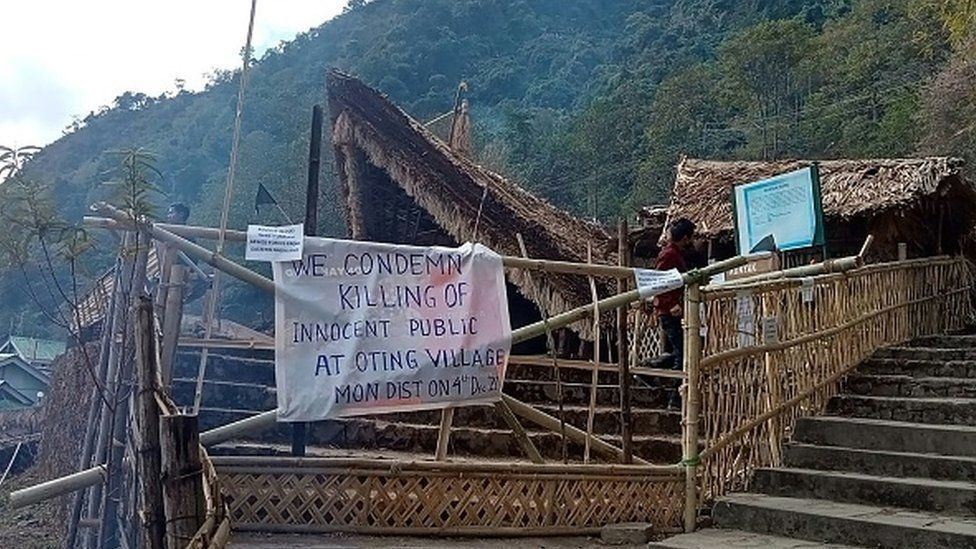 IMAGE SOURCE, GETTY IMAGES
IMAGE SOURCE, GETTY IMAGESFamily members of Langwang and Thapwang – 25-year-old twins who were among the killed miners – say they just want the brothers back.
“My brothers supported eight of us with their income. Now they are lying in their graves, thanks to the army,” said their brother Nenwang, who lost vision in his right eye after a childhood accident.
Everyone in the close-knit community has a story to tell.
Tingai Konyak, a local businessman, said that he travels daily on the same route as the miners.
But on the day of the shooting, he decided to take a detour because it had already become dark.
“Around seven in the evening, my family called to ask if I had heard gunshots. I would have been dead if it weren’t for the detour,” he says.
Monglong, the young bride, is still in shock. She waited for hours that night, hoping that her husband would return.
When she called his phone, his friend answered and told her that Hokup was being taken to the hospital.
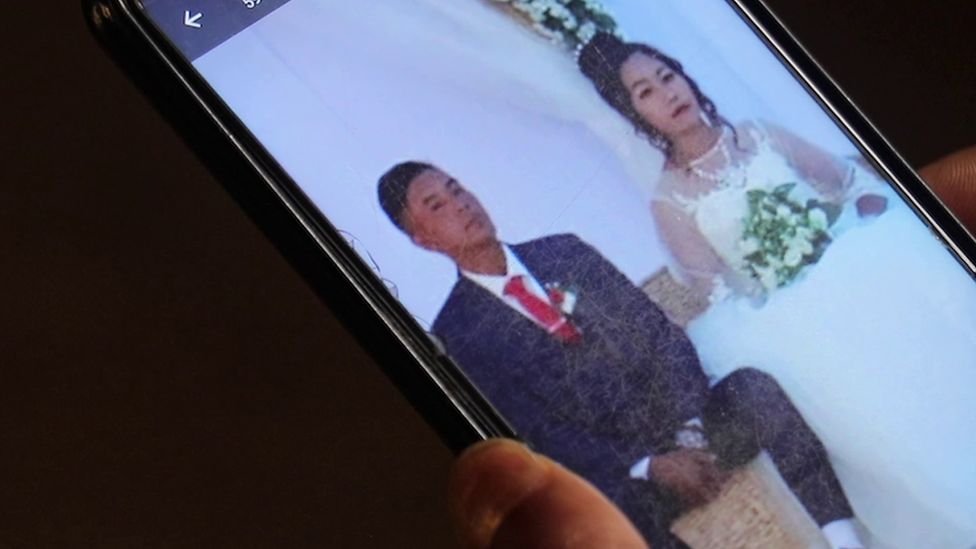 IMAGE SOURCE, NITIN SRIVASTAVA/BBC
IMAGE SOURCE, NITIN SRIVASTAVA/BBC“I insisted on talking to him, but he could barely do so. Within the next hour, everything was finished,” she says.
The villagers are now praying for the speedy recovery of two survivors of the shooting, who are still in hospital.
One of the two men has told The Indian Express newspaper that security forces shot straight at them, without giving even a signal to stop.
The federal government has announced compensation of 1.6 million rupees ($21,131; £15,965) each to the families of the victims. But the villagers of Oting have rejected the offer.
It had begun to drizzle as we began our long trek from the village.
Suddenly, a young woman with a baby in her arms came running after us.
“If the army can kill my husband without any reason, they should come here and adopt my child as well,” yelled Ngamlem, 29.
Her voice echoed in our ears as we climbed down the hill.

